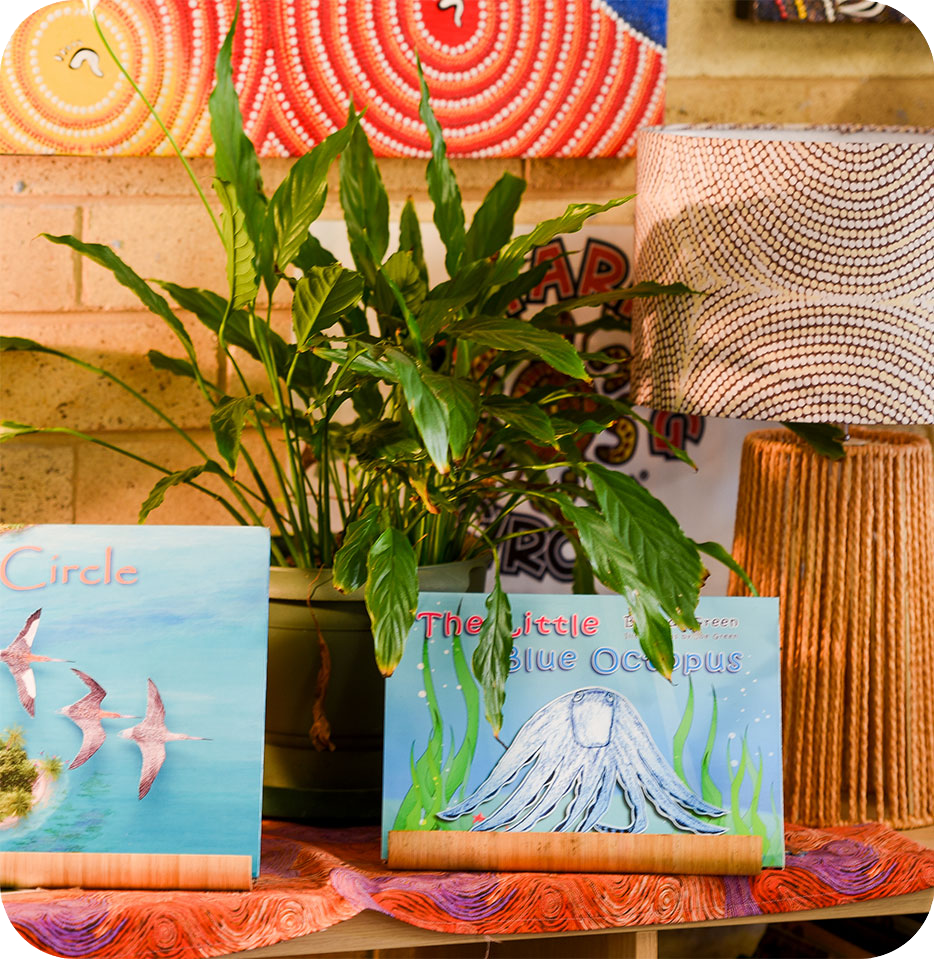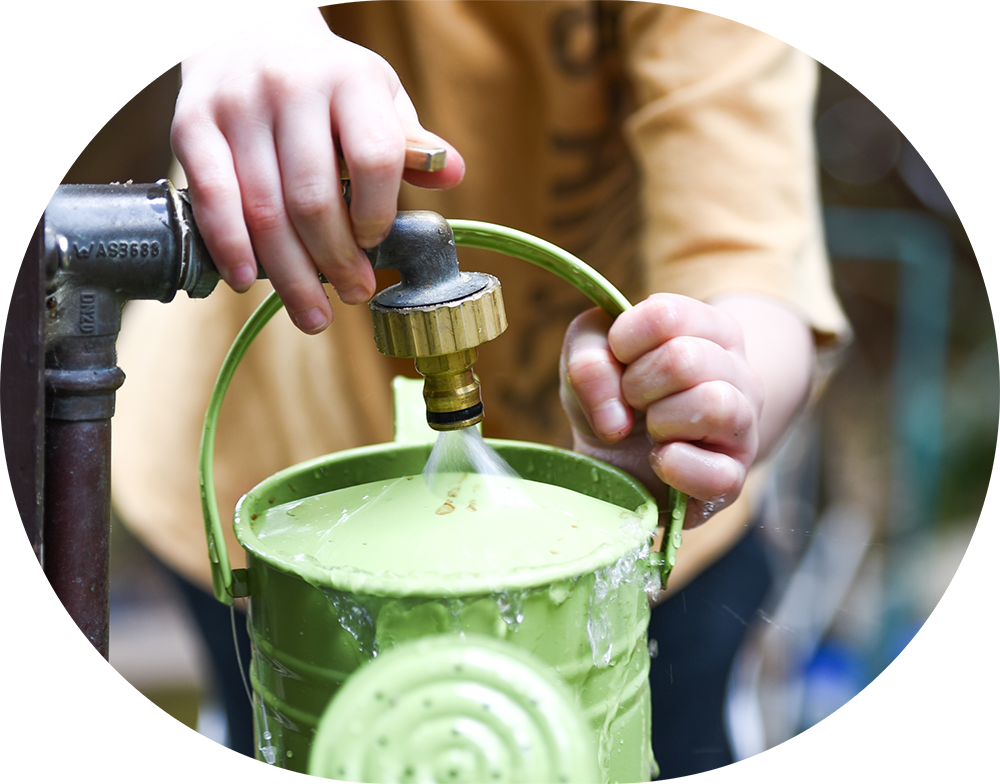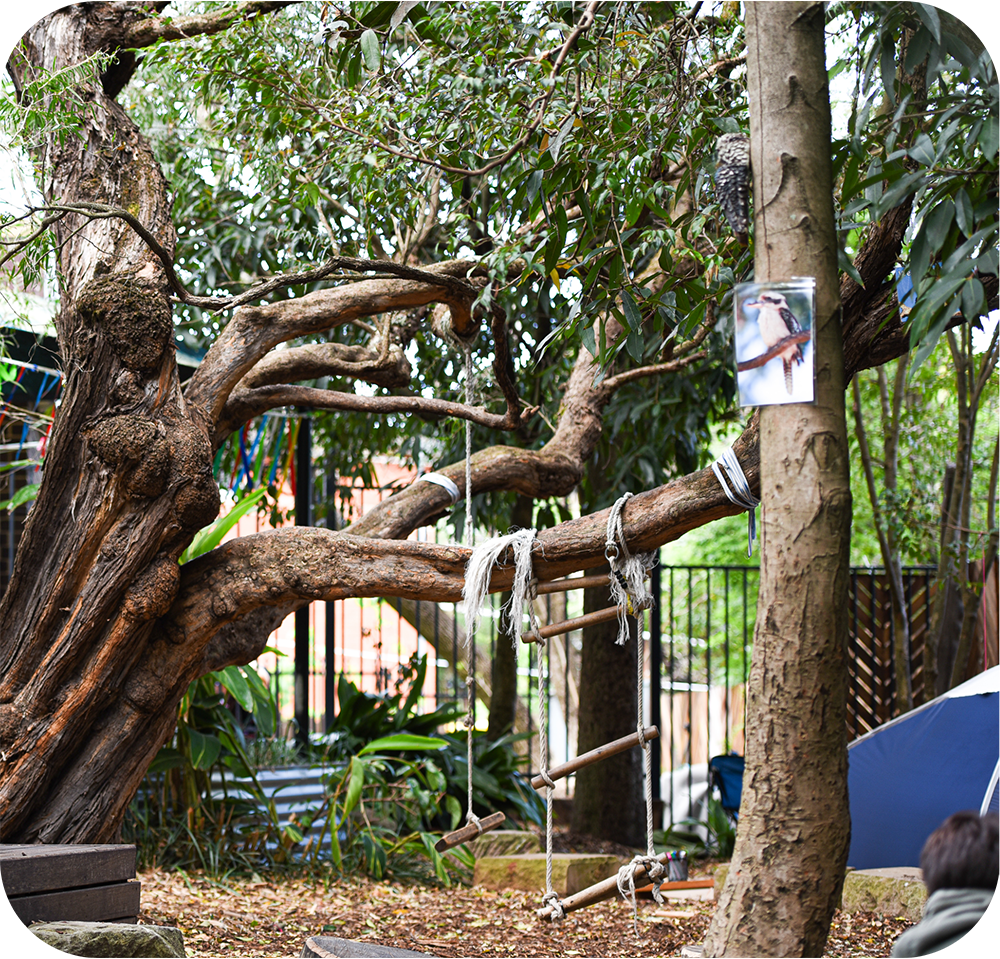The philosophy behind our program is that children learn best through play and engaging in hands on learning. It requires active thinking and experimenting to find out how things work, and to learn first hand about the world we live in. We believe in children’s right to BE so we allow plenty of time for children to be joyful and immerse themselves in the moment.

We put a great deal of focus on children’s social
and emotional wellbeing, so they move to formal schooling with self-confidence, resilience, appreciation for difference and the ability to defend themselves and others.
We build a community of learners, so children develop lifelong skills in how to get along with a variety of different personalities as they work in small and large groups. Children learn how to work together, make adjustments, accept decisions and limits and appreciate diversity of views. We strive to embed First Nations culture and truth telling into our program so we are authentically sharing our Reconciliation Action Plan.
Our program is based on
– Current educational theory and research;
– Our philosophy;
– The Early Years Learning Framework;
– The National Quality Standards;
– The interests and development of the children;
– Input from families and children.
We regularly take children into the community; as children grow and develop connections to the outside world to develop understandings of how society works, and to recognise and understand the shared values that underpin our society.

What our day looks like
Morning Session
Our day begins at 8am / 8:30am / 9am (depending on days). Our play-based learning environment operates indoors and outdoors simultaneously with educators moving with the children through-out the day. Educators support children to engage in learning through play, individually or in small groups that –
– Allows for creative expression of personality.
– Develops dispositions for learning such as curiosity, persistence and resilience.
– Enables children to make connections between prior experience and new learning.
– Encourages children to develop and sustain relationships with both peers and adults.
– Supports communication and a positive sense of wellbeing.
– Enables children to feel connected to their home and wider community.
(EYLF, V2 2022, states that when children have positive experiences, they develop an understanding of themselves as significant and respected and feel a sense of belonging.)
Morning Tea
This is progressive and children come when they are hungry, it is a time for children to join with peers in an unhurried way. It is a great opportunity to develop self-help skills, be aware of healthy eating, hygiene, and to engage in social interactions. Mealtimes are opportunities to discuss interests and become aware of diverse opinions and share knowledge.
Mid Session
Children continue playing and learning in the environment. Educators interact with children and draw on a repertoire of pedagogical practices to promote learning by –
– Adopting holistic practices
– Listening and responding to children
– Intentional teaching
– Valuing the social contexts of children and their families
– Providing for continuity in experiences
– Assessing and monitoring learning to inform learning outcomes for children.
– Children are also encouraged to work together to care for the learning environment
“Learning environments include physical, temporal, social and intellectual elements. Welcoming,safe and inclusive indoor and outdoor learning
environments reflect, respect, affirm the identities, and enrich the lives of children and families”.(EYLF V2 pg 23)
Project Work / Group Times
Projects happen through-out the day and are a combination of passions and interests of children but also we consider what might be of interest to children so we can extend their interests and knowledge.
Group times; These involve mindfulness, Acknowledgement of Country and range from music, literature, literacy, message basket and discussions that help children to actively construct their own understanding and contribute to learning.
Lunch
This is progressive and creates a sense of community and extends social connections. It is also a time to develop self-help skills, be aware of healthy eating, hygiene, to compare, classify and compare food items.
Afternoon Session
The children continue to build on their holistic development by using the indoor and outdoor environments to build social and emotional skills, to work on fine motor skills, literacy and numeracy games and learn about the reciprocal rights of peers as they co-construct learning.
The EYLF reminds us that Children’s learning is dynamic, complex and holistic. This means that cognitive, linguistic, physical, social, emotional, personal, spiritual and creative aspects of learning are all intricately interwoven and interrelated. (Pg 8)
Children tidy up and come inside for small relaxed groups where we read, complete puzzles or play circle games at the end of the day.
As you arrive, educators endeavour to share aspects of your child’s day with you.
Hours of operation
Drummoyne Preschool is open for children between the hours of 9am and 3pm Monday, Tuesday and Wednesday (extended hours 8.30-9.00am and 3.00-3.30pm at extra cost) AND 8am-3.30pm on Thursday and Friday. We are not licensed to have children attend before or after these times.
Term dates
We run four terms a year and are closed for school holidays.
